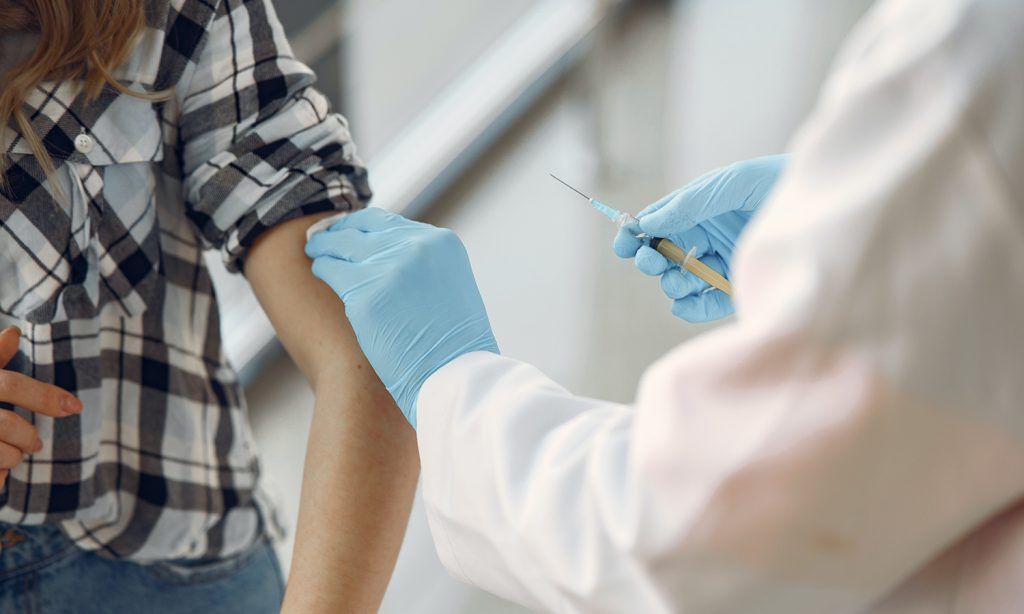
Many questions exist about COVID-19 vaccines and to get to the facts, it’s important to understand how the vaccines work and affect the body.
The most common side effects are muscle aches, fatigue, soreness at the injection site, headache, and fever. These short-term side effects typically resolve within 24 to 48 hours and are a part of the body’s natural response to the vaccine. One noteworthy side effect, especially for women, is the possibility of swollen lymph nodes under the arm where the vaccine was administered.
Although rare, about 10% of women who received the vaccine in a clinical trial reported swollen lymph nodes under the arm. Lymph nodes swell as the body prepares an immune response and can occur in reaction to many things including an injury, such as a cut, or a virus such as the common cold, and as an immune response to the COVID-19 vaccine. This response can be concerning as it could be detected in your next mammogram.
Swollen lymph nodes and mammograms
Swollen lymph nodes under the arm can be an uncommon sign of breast cancer. If detected on a mammogram, it represents a change from prior studies so that’s why doctors will recommend that you return for more careful diagnostic evaluation to rule out any possible breast cancer. Swollen lymph nodes are more common after the Moderna vaccine, and side effects are more common after the second shot than the first.
Providers thoroughly investigate every finding in mammograms, so it will be more common practice for the provider conducting your mammogram to ask you whether you’ve recently received the COVID-19 vaccine and if so, when.
You’re care will never be compromised.
Scheduling your mammogram
Most doctors recommend starting an annual mammogram at age 40, even if you have no family history. If you have had relatives who have had breast cancer at a young age or tested positive for a breast cancer related gene, talk to your doctor about starting your annual screening earlier than age 40. Screening mammograms are very important, especially if you missed your mammogram last year, which a lot of women did. If you haven’t scheduled your next mammogram yet, do so as soon as possible.
To reduce the likelihood that swollen lymph nodes are detected on a mammogram screening, UPMC is encouraging women to schedule their mammograms before their COVID-19 vaccine or four weeks after the second vaccine dose if it does not delay care. Women who are receiving diagnostic mammograms because there is a sign of a possible problem, such as a lump, should not delay those mammograms even if they are scheduled to be vaccinated against COVID-19.
Because the COVID-19 vaccine is in such short supply, eligible patients should get the vaccine as soon as they can. People who already have vaccine or mammogram appointments should not reschedule or cancel either. If you have any questions, do not hesitate to contact your provider.
Susan Branton, MD, FACS, is the medical director of the Kathryn Candor Lundy Breast Health Center at UPMC in the Susquehanna Region. UPMC offers mammography and breast health screenings at multiple locations. For more information, call 570-326-8200 or visit UPMCSusquehanna.org/breast.



